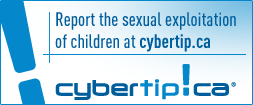Protective factors that help to prevent exploitation
of children through prostitution
Familial issues
- Positive family communication
- Parental supervision
- Strong parenting skills
- Family boundaries
- Models of mutually committed and enduring intimate relationships
Social issues
- Being respected by teachers and other students
- Strong connections between family and school
- Positive peer influences
- Cooperative relationships
- Relationships that are reliable and lasting
- Youth programs in the neighbourhood
- Caring neighbourhood
- Natural surveillance in neighbourhood
- High neighbourhood attachment
- Establishment of at least one relationship and secure attachment with a trusted adult.
Personal issues
- Positive sense of identity
- Social competence
- Problem-solving skills
- Communication skills
- Active coping style
- Sense of accomplishment
- Resistance skills
- Strong perception of their ability to control the outcome of their future.
- In the face of stress, do not withdraw and socially isolate themselves.
- Capacity for empathy and perspective-taking
- Child feels safe at home, school, in the neighbourhood
Source: Kids in the Know: Risk and Protective Factors Checklist, Child Find Manitoba, 2006

